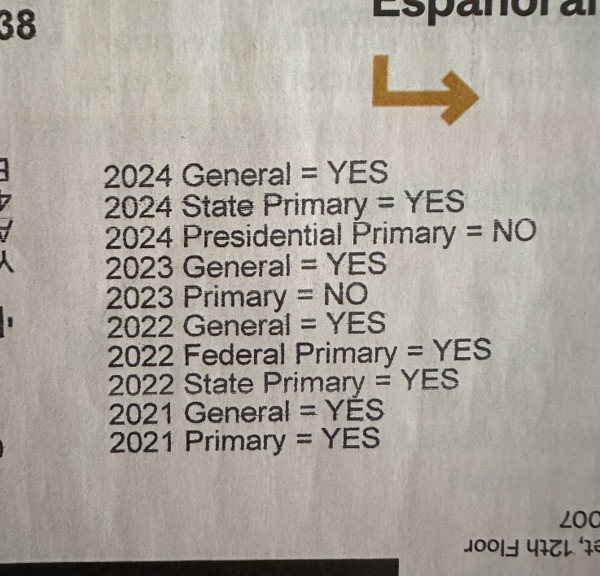Proposal 1 (I’m voting: Yes)
Development has already begun on ~300 acres of protected area in violation of the state charter as written today; this proposal amends the charter to make the development ok. Which is a shady and annoying move, and I would probably vote against this proposal if it didn’t also stipulate that they would add 8x the amount of new forest land that must be preserved, which sounds good—maybe better—than where we started.
An argument could be made that this new forest land would never be identified or protected (or does it need to be made new? I don’t know), but I’m choosing to take an optimistic, opportunistic perspective: If we don’t say yes to things because they’re not perfect and indefensible, then I don’t think progress will happen fast enough.
Proposals 2 (Yes), 3 (No), and 4 (No)
The controversy around proposals 2–4 is that they eliminate the city council’s roles in each proposals’ respective housing processes, in the interest of expediting them. A local city councilmember’s job is to understand, protect, and act on the interests of their constituents; these proposals would make that impossible because they remove the councilmember’s involvement entirely. People have argued that this is a power grab by Eric Adams. Based on what I have read about him, I believe it. And yeah, I think it’s pretty shady that this change in power dynamic is not explicitly written in the proposals.
Another argument I agree with is that there could be a better balance in power between the council district, the borough, and the city. If housing is such a huge issue for the whole city, then it’s my opinion that every borough and council district shares the responsibility of bringing availability up.
Part of proposal 2 suggests that the districts producing the least amount of affordable housing are on the hook for building more, no matter how much their councilmember objects. I think that’s fair? I’ve read enough news about “district residents striking down affordable housing proposal bc they don’t want poor people in their neighborhood” to the point where I think, “Come on, I think we can do better.”
The other part of prop 2 is the expedition of the review process for 100% affordable housing projects (which I guess is different from other affordable housing projects? This part is fuzzy to me), eliminating the councilmember’s role in the process. My understanding is that 100% affordable part actually is a small number of housing projects so the impact of this is relatively small. I’m not sure if I fully agree with this part of the proposal, but I don’t think I disagree enough to change my Yes vote to a No. 🤷🏻♀️ Yoko logic.
Was this proposal written in my interest? Possibly not, given that it was put forward by the Adams administration. Does it propose a change that could benefit the city and me? I think it’s possible!
I’m lucky to live in a district whose current and previous councilmembers were both in tune with their constituents and, to my understanding, have played an active role in the evolution of the district. I can’t shake the initial skepticism when I see something new pop up in the neighborhood. But after it’s integrated into my day-to-day, I often do feel, sometimes begrudgingly, like the neighborhood has been improved. Are there exceptions to this? Definitely yes lol. But I think part of the reason why the hit rate has been pretty good is that my councilmembers are actively involved and negotiating with developers about what they can build here, and what are the conditions under which that’s permissible. And to take that power away is something that I don’t want.
Proposal 3 is for expediting the process for allowing for more housing density, but not necessarily in the interest of creating more affordable housing.
There is a newly developed apartment building down the street that we were excited to see, maybe even buy into. But when they finally opened the units for viewing, they were miniscule and SO expensive. It was insultingly nonsensical. That was like, 2 years ago. Those units are STILL empty. This is anecdata, sure. And this proposal doesn’t do enough to convince me that we’ll solve this problem.
Proposal 4 rearranges the housing development appeals process so that the final say comes down to a best-of-3-person vote between the mayor, the local borough president, and the city council speaker, where previously it was just the mayor but with significant input from the local councilmember.
I’m honestly not sure if “member deference” even matters anymore, given that it didn’t prevent the development of Industry City, even though our local councilmember at the time tried to use his veto power. I don’t think the current process makes sense, but I think it’s weird that the 3 parties in the proposal don’t include the local councilmember. I could be inclined to vote yes if they were included in the final appeals vote, but they’re not, so I’m voting no.
Proposal 5 (Yes)
This is a relatively uncomplicated one, so Imma leave it at that. Interested to hear any other counter-arguments tho.
Proposal 6 (YES PLEASE)
LOL at my copy of the NYC voter guide which tells me that there have been TEN elections in the years 2021–2024 (I guess this doesn’t even include the primaries that happened in June this year??).

This proposal alone will not eliminate by half the number of elections I’m supposed to vote in, but yeah can we PLEASE have fewer elections? Please please please let’s just vote yes on this one.
References
On the proposals:
- The City’s overview of the 6 ballot questions
- Gothamist’s overview on Prop 1
- Gothamist’s overview of Props 2–5
- SoftPower’s perspective of the 6 ballot questions
- Curbed’s roundup of who’s in favor of each proposal
On the whole ballot: